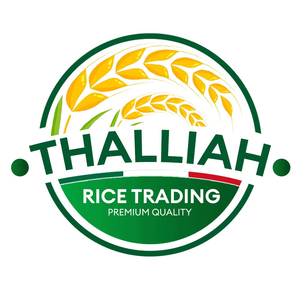Search
₱50.00
THALI HIGH QUALITY Coco Cubes / Coco Chips / Coco Chunks - For Gardening / Orchids | Best for Garden Decoration and plant support |pangpataba sa mga halaman at maging in-door or outdoor plants - READY TO SHIP
Sold by THALLIAH RICE TRADING
1 sold
Select options
Select
Shipping
From ₱95.00
Est. delivery by Apr 22 - Apr 24
Specifications

THALLIAH RICE TRADING
7 items
Shop performance
Better than 74% of other shops
Ships within 2 days
100%
About this product
Volume40L
Weight7KG
Fertilizer TypeOrganic
Product description
Coconut Husk Cubes are compacted blocks made from dried coconut husks (coir). These cubes are primarily used for:
•Horticulture & Gardening – As a growing medium or soil conditioner due to their excellent water retention and aeration properties.
•Animal Bedding – Providing a natural, absorbent, and eco-friendly bedding option for pets and livestock.
•Fuel & Biomass – Sometimes processed into briquettes for burning as an alternative fuel source.
•Erosion Control – Used in landscaping to prevent soil erosion.
Coconut Husk Cubes: A Detailed Overview
1. What Are Coconut Husk Cubes?
Coconut husk cubes are compacted blocks made from the outer fibrous layer of coconuts, known as coir. These cubes are created by cutting, compressing, or shaping dried coconut husk into cube-like forms. They are widely used in agriculture, gardening, animal care, and even as an eco-friendly fuel source.
2. Properties of Coconut Husk Cubes
•Highly Absorbent: They retain water well, making them ideal for horticulture and bedding.
•Biodegradable & Eco-Friendly: Made from natural coconut waste, reducing environmental impact.
•Lightweight & Durable: Despite being fibrous, they are sturdy and long-lasting.
•Aeration & Drainage: Provides excellent air circulation for plant roots when used as a growing medium.
3. Uses of Coconut Husk Cubes
A. Agriculture & Gardening
•Used as a soil amendment to improve moisture retention and aeration.
•Helps in hydroponic farming as a growing medium.
•Supports seed germination and plant growth.
B. Animal Bedding
•Provides a soft, absorbent, and natural bedding option for pets and farm animals.
•Reduces odors and maintains dryness.
C. Biomass Fuel & Energy
•Sometimes processed into coconut husk briquettes or fuel cubes for burning as an alternative energy source.
•Used in stoves, grills, and industrial heating applications.
D. Landscaping & Erosion Control
•Helps prevent soil erosion when used in landscaping projects.
•Can be used in reforestation efforts to support plant growth in degraded areas.
4. How Are Coconut Husk Cubes Made?
•Collection: Coconut husks are gathered after coconut processing.
•Drying: The husks are dried to reduce moisture content.
•Cutting & Processing: The dried husk is cut into cubes or further processed into compressed blocks.
•Packaging & Distribution: The final product is packaged for sale in agricultural, pet, or industrial markets.
5. Advantages Over Other Materials
•Sustainable Alternative: Unlike peat moss, which is non-renewable, coconut husk is a byproduct of the coconut industry.
•Long-Lasting: Can be reused multiple times, especially in gardening.
•Chemical-Free & Natural: Safe for plants, animals, and the environment.
Explore more from THALLIAH RICE TRADING










4.8
2127sold
₱15.00
₱30.00



No more products
Open TikTok




























